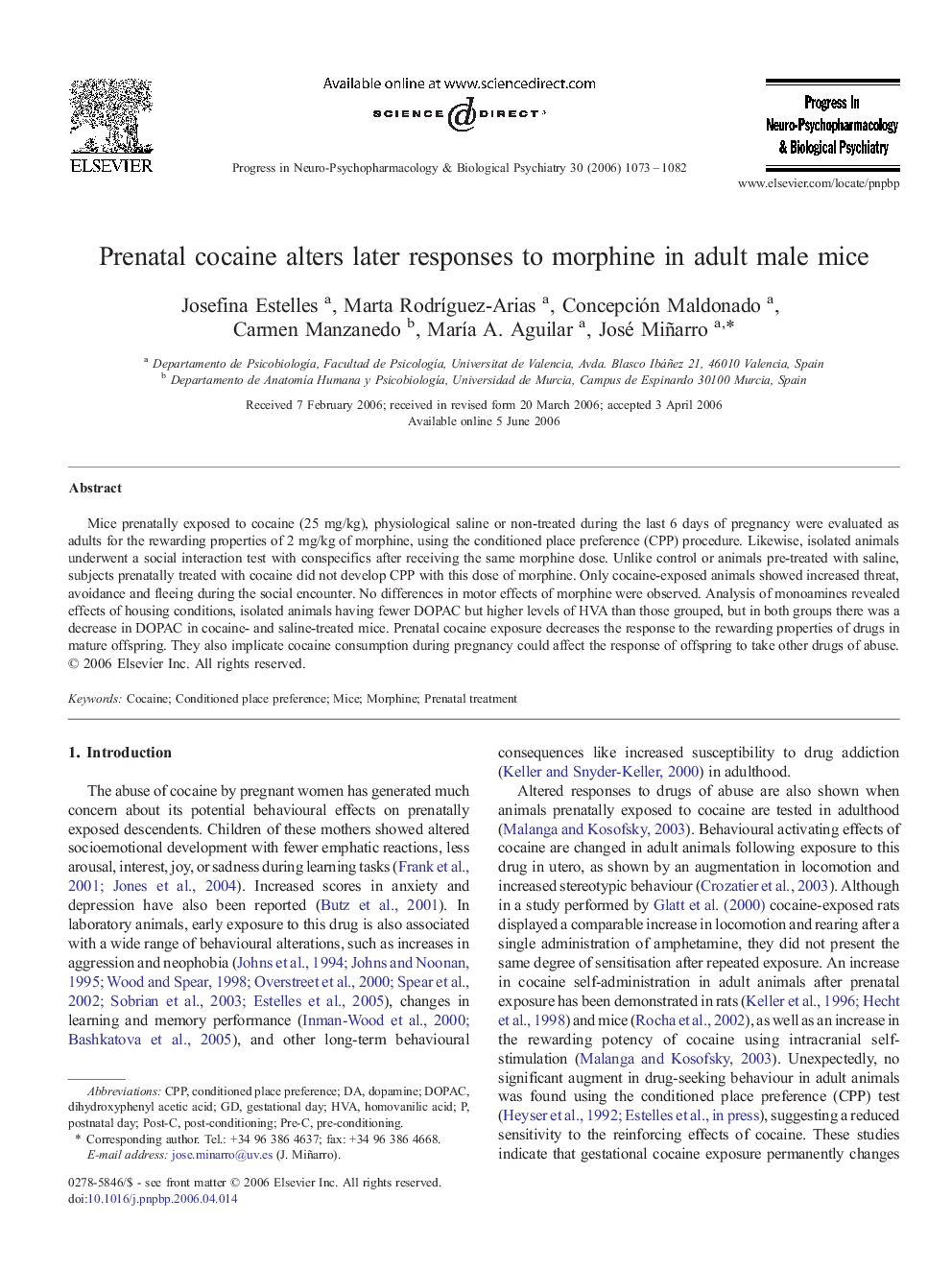| Article ID | Journal | Published Year | Pages | File Type |
|---|---|---|---|---|
| 2566778 | Progress in Neuro-Psychopharmacology and Biological Psychiatry | 2006 | 10 Pages |
Abstract
Mice prenatally exposed to cocaine (25Â mg/kg), physiological saline or non-treated during the last 6Â days of pregnancy were evaluated as adults for the rewarding properties of 2Â mg/kg of morphine, using the conditioned place preference (CPP) procedure. Likewise, isolated animals underwent a social interaction test with conspecifics after receiving the same morphine dose. Unlike control or animals pre-treated with saline, subjects prenatally treated with cocaine did not develop CPP with this dose of morphine. Only cocaine-exposed animals showed increased threat, avoidance and fleeing during the social encounter. No differences in motor effects of morphine were observed. Analysis of monoamines revealed effects of housing conditions, isolated animals having fewer DOPAC but higher levels of HVA than those grouped, but in both groups there was a decrease in DOPAC in cocaine- and saline-treated mice. Prenatal cocaine exposure decreases the response to the rewarding properties of drugs in mature offspring. They also implicate cocaine consumption during pregnancy could affect the response of offspring to take other drugs of abuse.
Keywords
Related Topics
Life Sciences
Neuroscience
Biological Psychiatry
Authors
Josefina Estelles, Marta RodrÃguez-Arias, Concepción Maldonado, Carmen Manzanedo, MarÃa A. Aguilar, José Miñarro,
